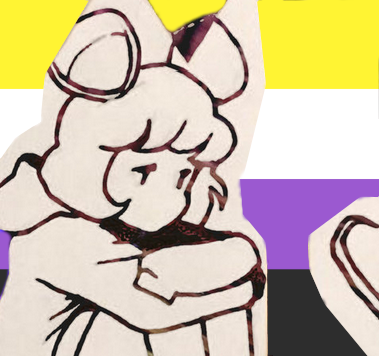- cross-posted to:
- the_dunk_tank
- cross-posted to:
- the_dunk_tank
Look right, I like a lot of things about the foundational 2007 text Whipping Girl by Julia Serano. But if you've ever been told to read this book without any qualifiers, I'd like to apologise on behalf of the trans community.
![]()
Obviously the concepts of traditional and oppositional sexism, the idea of transmisogyny, Serano's analysis of media depictions of trans women, and more are all superb and well worthy of praise. However, Serano is a land of contrasts, as AcidSmiley so concisely put it. She's read both Leslie Feinberg and Kate Bornstein's works, and writes this extremely salient quote:
We must also stop pretending that there are essential differences between women and men. This begins with the acknowledgement that there are exceptions to every gender rule and stereotype, and this simply stated fact disproves all gender theories that purport that female and male are mutually exclusive categories.
Despite all that, Serano has a perspective that's utterly mired in exorsexist* binary-only assumptions, with language to match. On own, describing someone taking estrogen as "hormonally female" or her body prior to hormone replacement therapy as "physically male" would be unpleasantly cisnormative, but just that. I respect fully that the intent of this book is to analyse the ins and outs of being trans in the gender binary, and so the text is focused in that direction. When Serano writes goofy shit like "mtf spectrum" though, you wonder if she wouldn't be better served by thinking a little outside of the two-genders box.
She doesn't want to, though; Julia Serano circa 2007 (the text has not been meaningfully updated to my knowledge) is a brave warrior going against the grain of non binary domination :citation to defend our poor, repressed binary genders. She's taking down those woke non-binary moralists from their ivory towers:
There are many different (but often overlapping) forms of gender entitlement and gender anxiety. For example, one of the most frequently discussed forms of gender entitlement is heterosexism, the belief that heterosexuality is the only "natural," legitimate, or morally acceptable form of sexual desire. Heterosexist gender entitlement ean lead to homophobia, which is an expression of gender anxiety directed against those people who engage in same-sex relationships. Similarly, the gender-entitled belief that all women are (or should be) feminine and men masculine-which some have called cisgenderism-gives rise to transphobia, a gender anxiety that is directed against people who fall outside of those norms. While homophobia and transphobia have both received mainstream attention, thinking in terms of gender entitlement and gender anxiety also allows us to consider less well- known (but just as disparaging) forms of gender and sexual discrimination. For example, many gays and lesbians who believe that all people are "naturally" either homosexual or heterosexual often express biphobia, a gender anxiety directed toward bisexual people because they challenge the presumption that people can only be attracted to one sex or the other. I have also met some people in the transgender community who feel that identifying outside of the male/female binary is superior to, or more enlightened than, identifying within it. Such people often express gender anxiety (binary- phobia?) at people who identify strongly as either female or male.
I would be laughing if I weren't actually really mad about this classic, foundational transfeminist text featuring tons of brainworms about anyone outside the binary. It's a punchline, the phrase "binary-phobia" is perfect to sit right next to "heterophobia" or "cisphobia". It's right up there alongside white westerners claiming to be victims of racism when someone calls them a cracker, even. It should be plainly self-evident how ridiculous a claim this is. I want to ask Serano circa 2007 to tell me which genders have legal recognition - binary or non-binary ones?
It is truly incredible that a woman can write so sharply about the cultural/societal hedgemony of cis gender and heterosexuality, about how the concept of anything being inherently gendered is antithetical to feminism, and then turn around and write a deeply unserious aside about how non-binary people are apparently smug moralists commiting discrimination against people of binary gender due to the same gender anxiety**--in itself a smart concept about how queer people disrupt assumed gender/sexual normality--that drives cis people to be transphobes!! I am for real left somewhat speechless.
I don't think Whipping Girl is a book nobody should read, obviously. But I scoured the bearsite to see if anyone had dome criticism of or even qualified their recommendation of Whipping Girl, and I found nothing. Part of me wonders if anyone has made a concerted criticism of this book before, but surely someone has before me. I yap exclusively for your benefit! I wonder if Sexed Up or Excluded are better, but frankly I'm just disappointed and angry. Truly a joke.
--
*Exorsexist, I learned today, is discrimination against people outside the gender binary!
**Serano describes gender anxiety as "the act of becoming irrationally upset or being made uncomfortable by the existence of those people who challenge or bring into question one's gender entitlement." In turn, she describes gender entitlement being "an arrogant conviction that one's own beliefs, perceptions, and assumptions regarding gender and sexuality are more valid than those of other people". She is more or less insinuating that non-binary people are befuddled supremacists who cannot stand... adherence to the gender binary. Cool.


deleted by creator